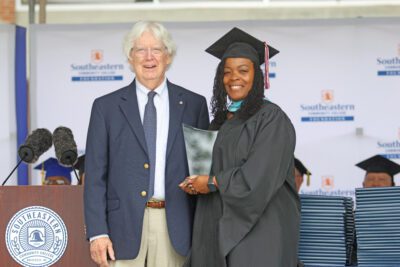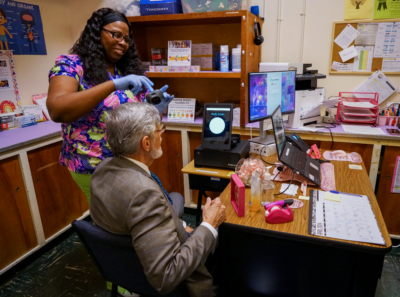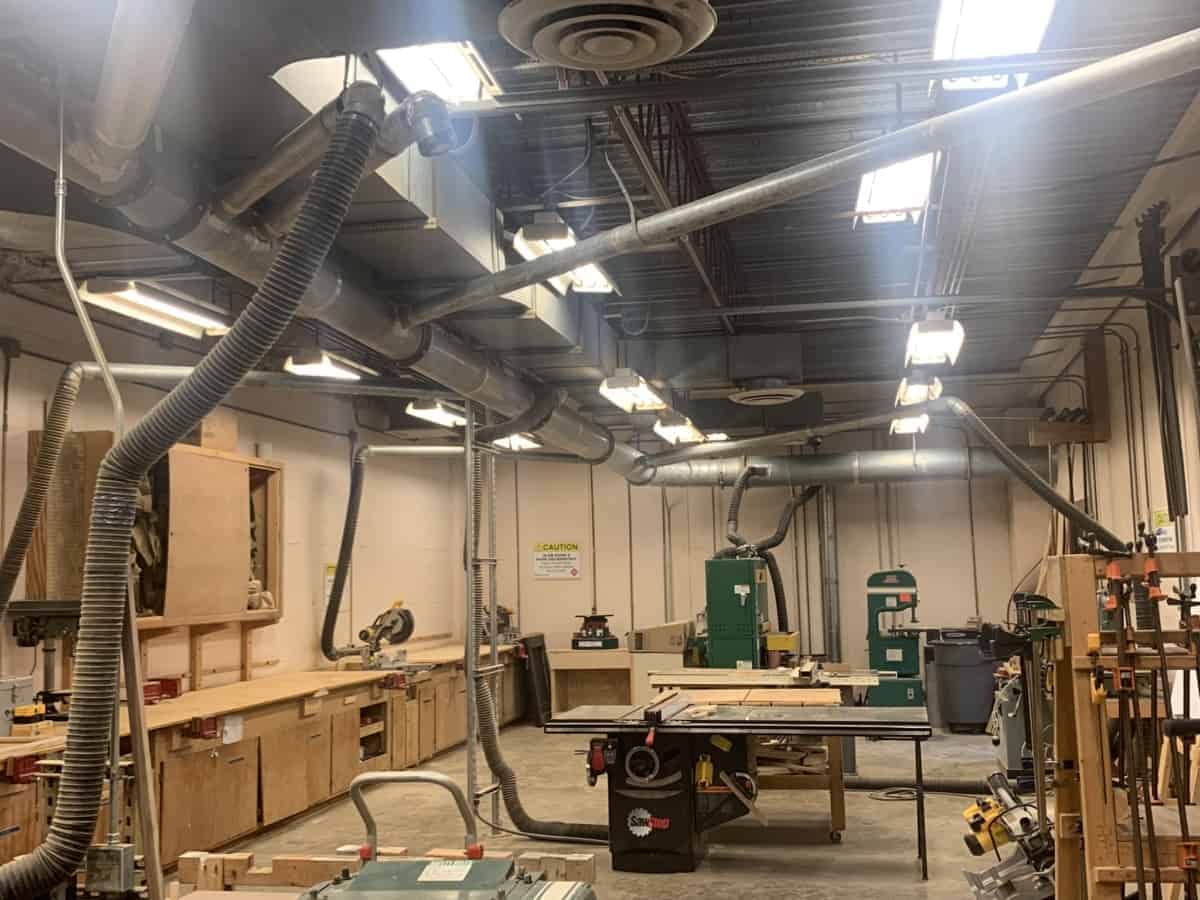
The Triangle region has had sustained growth for a significant amount of time. Durham and Raleigh continue to rate among the top cities for residents looking to relocate in the country, a trend that does not look likely to abate anytime soon. With significant in-migration comes a building boom across the Triangle, which is a challenge for companies in the skilled trades as they have more positions than people available to fill them. We visited Durham Tech to see how one community college is partnering with industry to tackle this challenge.
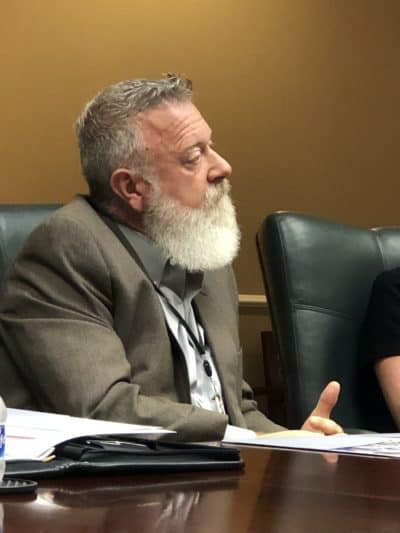
Durham Tech serves 5,415 students across Orange and Durham County and has a teacher to student ratio of 14-to-1. As our visit began, Durham Tech representatives stated that they believe their institution is more than just a community college — it’s a home for curious minds seeking mentors and a workshop for makers seeking practical skills. Touring the campus showcased the opportunities that community colleges provide, opportunities that Durham Tech employees noted are often underestimated by prospective students and families alike.
Despite the breadth of offerings Durham Tech provides, a theme of the opening conversations was the challenge community colleges face to convince students and their families that they can be a primary option for postsecondary education. Durham Tech’s Executive Vice President Tom Jaynes explained that there isn’t necessarily a lack of support from the community. “People are ultimately glad that Durham Tech exists,” he said. Yet, when Jaynes asks some of those same supporters if they would send their own child to community college, he is often met with hesitation at best.
Lesson: Enrollment increases require a different approach
Enrollment has trended down at community colleges across the United States for the last decade. Enrollment declining during good economic times is not unusual, but the length of the decline is. Durham Tech has avoided this fate. Jaynes credits their slight enrollment increase to a variety of factors, including community college liaisons working in high schools and an expansion of dual enrollment and Career and College Promise programs.
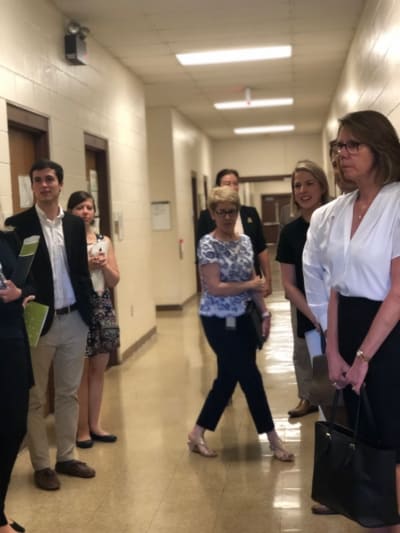
With more than 10% of the Durham Tech student body now coming from dual enrollment, the college is seeing an increase in younger students who continue their education with the college.
The college liaisons on high school campuses are a key part of their enrollment strategy. Career and College Promise staffers are helpful, but they are rightly focused on career pathways. The existing guidance counselors and advisors have a wide array of roles and responsibilities. The liaisons are solely focused on communicating the possibilities that Durham Tech offers for prospective students.
Investments in marketing and scholarship programs have also helped boost enrollment.
Colleges across North Carolina will continue to wrestle with enrollment for years to come. As Dr. Dale McInnis of Richmond Community College mentioned recently, “Our business model simply can’t be waiting for the next recession.”
Lesson: The Durham Promise is a different kind of promise program
Free college, canceling student debt, and other topics have become hot button issues on the 2020 campaign trail. Occasionally lost in the political debates is the fact that college promise programs can take many forms. Most of the promise programs implemented in North Carolina so far are “last dollar” scholarships, meaning they provide support once a student receives Pell Grants and other types of support. Durham Tech’s Promise program is a first dollar program.
The Association of Community College Trustees describes the difference between first dollar programs and last dollar programs as:
“In a ‘first-dollar program,’ the amount of College Promise funding awarded to an eligible student does not take into account any additional funding or grants that the student is eligible for, like a federal Pell Grant. Therefore, a ‘first-dollar’ College Promise program covers the direct costs of being a student and has the potential to reduce the associated costs of being a student like transportation, child care, school materials, and other costs.”
Jaynes noted that Durham Tech was able to make this investment thanks to the support of the Durham County Commissioners. Jaynes went on to share that the Durham Promise serves as a marketing hook for prospective students.
Lesson: The WayMakers program focuses on a pathway for students to enter skilled trades
The building boom in the Triangle has increased competition for employers in the trades. According to Maryah Smith-Overman, the program director of construction trades, employers have begun to recognize the need to invest in the pipeline for future employees. Durham Tech launched WayMakers in response. WayMakers is a public-private partnership between the college, K-12 district, philanthropy, and local businesses. WayMakers covers major skilled trades: construction, HVAC, plumbing, electrical, highway construction, power line maintenance, and entrepreneurship.

The program begins in the 10th grade at the Southern School with coursework around construction. In the 11th grade, students take a pre-apprenticeship survey course. In the 12th grade, students job shadow and begin internships. They also have the option of taking Durham Tech coursework. The program then presents optional pathways ranging from going directly to work, starting an apprenticeship, or enrolling in college.
We toured the new plumbing lab, a tiny home the program had built in partnership with Habitat for Humanity, and several labs. Local businessmen joined us to speak to the importance of the program. As with other visits, stakeholders noted that the program is also focused on promoting the opportunities offered by skilled trades to parents as well as kids.
The leadership behind WayMakers hopes that the program proves successful at closing the skills gap and bolstering the pipeline of future employees for skilled trades in Durham and Orange County. If the model works, they anticipate WayMakers being offered to other community colleges and communities across North Carolina.
Recommended reading
